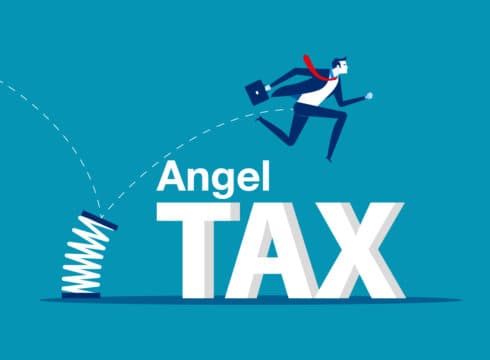The accredited investor is a new definition to include trusts, individuals, family member of a startup
DPIIT has already prepared a draft definition and is now seeking views of stakeholders
These investors will be provided exemption above INR 25 Cr limit
Inc42 Daily Brief
Stay Ahead With Daily News & Analysis on India’s Tech & Startup Economy
The Department for Promotion of Industry and Internal Trade (DPIIT) has been actively engaging with stakeholders and government bodies to improve the angel tax structure in India. The latest effort comes as DPIIT is now reportedly exploring a definition of ‘accredited investors’, who could be provided tax incentives for investments in startups.
This was confirmed by an Inc42 source close to the development. The accredited investor is being created as a new definition to include trusts, individuals, the family member of a startup and unlisted companies, and hence, enable them to get exemption from angel tax under Section 56(2)(viib) of the Income Tax Act, 1961, beyond the INR 25 Cr limit.
DPIIT, under the commerce and industry ministry, has already prepared a draft definition and is now seeking views of stakeholders.
The active pursuit of angel tax comes after the DPIIT notified changes in Section 56 (2) (viib) of the Income Tax Act, 1961 in the February 19 notification. According to the new notification:
- The startups will continue to be considered as startups till a period of 10 years since their incorporation. Turnover of the entity for any of the financial years since incorporation/ registration has not exceeded INR 100 Cr.
- All the startups are liable to receive angel tax exemption regardless of their share premium values given that the aggregate amount of paid-up share capital and share premium of the startup after issue or proposed issue of share, if any, does not exceed, INR 25 Cr.
At present, three categories of investors with a specified limit of turnover and net worth – listed companies, non-residents and alternate investments funds Category I like venture capital funds – also get an exemption from angel tax on investment beyond INR 25 Cr.
After the February 19 notification, the Central Board of Direct Taxes said that startups which received assessment notices under Section 56(2)(viib) of the Income Tax Act (I-T Act) will be exempt from Angel Tax if they comply with the February 19 notification.
As part of this, the income tax department had informed around 120 startups that they are eligible to receive an exemption from paying angel tax on the funding raised from angel investors. An Inc42 source confirmed today that over 135 startups have now received this exemption.
According to Inc42 DataLabs, in 2016, the number of early-stage investment deals stood at 624 — the highest between 2014 and 2018. However, in 2017, this number decreased by 11.69% to 551, and in 2018, it fell by a whopping 46.95% to 331 as compared to the base year 2016. Last year, the fear of angel tax got real and haunted both startups and investors after a slew of tax notices were sent to startups by the Central Board of Direct Taxes (CBDT).
However, with February 19 order, the angel tax investments in the country are expected to see a spurt of growth again as the ease of investment makes the angel funding lucrative as well as easy for startups and investors alike.
{{#name}}{{name}}{{/name}}{{^name}}-{{/name}}
{{#description}}{{description}}...{{/description}}{{^description}}-{{/description}}
Note: We at Inc42 take our ethics very seriously. More information about it can be found here.


